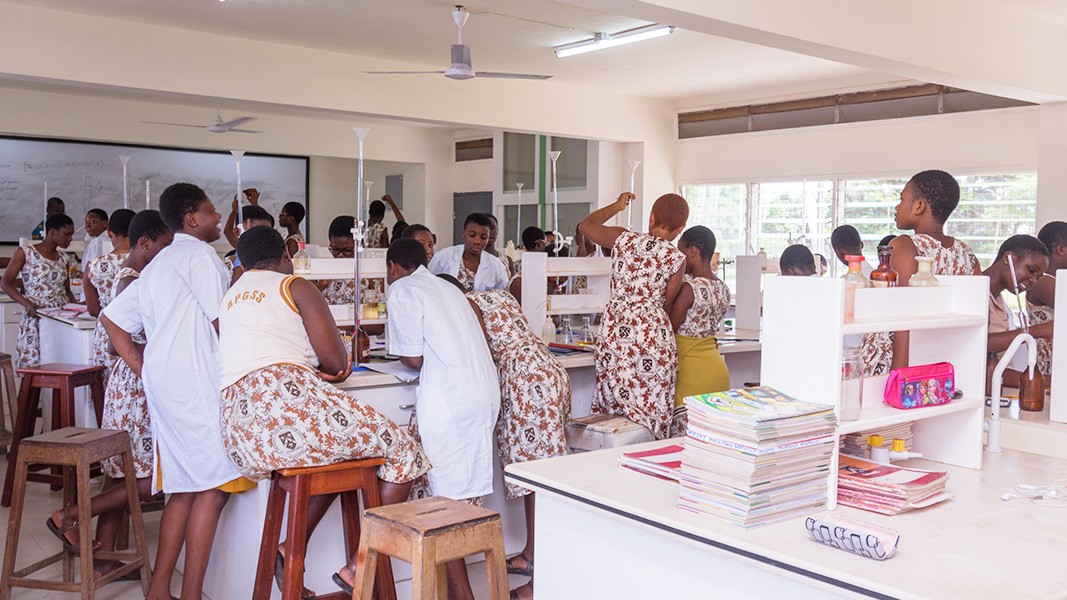Related documents
Related links

In 2018, Tullow committed $10 million into the building of school infrastructure for Senior High Schools (SHS) in Ghana over a period of five years, benefiting over 11,000 students.
A key component of Tullow’s Socio-Economic Investment (SEI) strategy is to support the building of capacity through education and skills acquisition in Science, Technology, Engineering and Mathematics (STEM). In 2018, Tullow committed $10 million into the building of school infrastructure for Senior High Schools (SHS) in Ghana over a period of five years, benefitting over 11,000 students. Tullow’s yearly contribution will be $2 million over this period. This project demonstrates Tullow’s Shared Prosperity philosophy and is aligned with the Government of Ghana’s objective to deliver against the UN’s Sustainable Development Goal by providing free Senior High School education.
The project will extend the infrastructure base of schools, provide socio-economic benefits as well as STEM skills development in Ghana. The project will provide classrooms, dormitories and furniture and will be implemented in partnership with the Ministry of Education and Ghana Education Service. Over the planned period of five years, the project aims to deliver at least 10 two-storey classroom blocks and 10 two-storey dormitory blocks across the country.
This is an important step in our support to building the capacity of the country through the provision of infrastructure to make education accessible to all Ghanaians.
Cynthia Lumor, Director of Sustainability, External Affairs and Local Content for Tullow Ghana
Over the past eight years, Tullow has strategically invested in education from the basic level aimed at building resilient fishing communities and supporting the total development of the country. At the pre-school level, the investment in the construction of 12 kindergartens mostly in fishing communities, the investment in STEM Centres, STEM Clubs and after school studies for basic schools at the primary level are aimed at building a solid foundation for education in fishing communities. This latest initiative, in support of the government’s free SHS policy, is to consolidate on the positive impact from previous projects.
School dropout rates in Ghana are around 30% (from the basic to the Senior High School), and a target of this project is to reduce this rate by 15 per cent. It is also expected to increase the number of rural poor Junior High School graduates enrolling in Senior High School by 10 per cent.